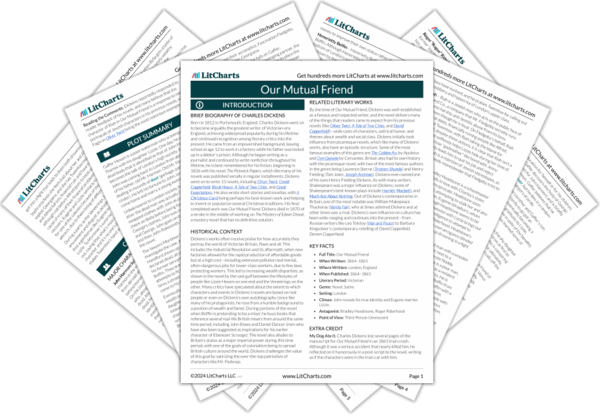Previous
Book 1, Chapter 4
|
Previous
Book 1, Chapter 4
|
Our Mutual Friend: Book 1, Chapter 5 Summary & Analysis |
Next
Book 1, Chapter 6
|


Upgrade to unlock the analysis and theme tracking for all of Our Mutual FriendOur Mutual Friend!
Get LitCharts A+